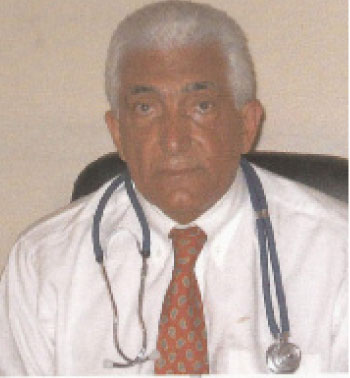
Furthermore, it is important to remember that it is not only the child victim who suffers following an abuse- the child’s family suffers as well. Parents will struggle with feelings of guilt, anger and grief. In these instances, it is important that the parents channel their feelings appropriately so that the child does not feel that the anger or disappointment is directed at them.
Dr Hassan Azadeh, our health adviser, a senior lecturer at the University of the Gambia and a Senior Consultant in Obstetrics & Gynaecology is today focusing on human assault/abuse worldwide and explain the different type of assaults and senility of their victims.
Sexual assault is any involuntary sexual act in which a person is threatened, coerced, or forced to engage against their will, or any sexual touching of a person who has not consented.
In legal terms, sexual assault is a statutory offence in various jurisdictions. The legal definition of the crime of sexual assault is determined by each jurisdiction. Specific legal jurisdictions and research often use highly technical or detailed definitions of the term.
Definition
The definition of sexual assault varies widely between the individual states. The Rape, Abuse & Incest National Network defines sexual assault as “unwanted sexual contact that stops short of rape or attempted rape. This includes sexual touching and fondling.
The National Center for Victims of Crime states:
“Sexual assault takes many forms including attacks such as rape or attempted rape, as well as any unwanted sexual contact or threats. Usually a sexual assault occurs when someone touches any part of another person’s body in a sexual way, even through clothes, without that person’s consent.”
Sexual assault can be forcible or acquiesced. Sadly, many child victims fall into the latter category after undergoing a period of “grooming” by a trusted adult in which the abuser uses increasingly explicit language and behavior towards the child in an effort to convince the victim that the sexual behaviour is acceptable or even required. In this type of abuse, the victim is often made to feel that they are misbehaving and will be punished in some way if they do not allow the abuse to occur or if they report the assault. Grooming and acquiescence however, is not limited to children. This type of abuse can also be seen in adult victims who are forced to participate in sexual activities at their workplace for fear of losing their jobs, or even at their place of worship after being told that their refusal to take part in the abuse is not pleasing to God. In these instances, the feelings of shame and guilt may be increased particularly in adults who may feel that they should have known better or should have stood up for themselves more. It is important to remember however that acquiescence is not the same as consent.
Types
Rape
Outside of law, the term rape (“an assault by a person involvingis often used interchangeably with sexual assault,a closely related (but in most jurisdictions technically distinct) form of assault typically including rape and other forms of non-consensual sexual activity.
Abbey et al. state that female victims are much more likely to be assaulted by an acquaintance (such as a friend or co-worker), a dating partner, an ex-boyfriend or a husband or other intimate partner than by a complete stranger.In a study of hospital emergency room treatments for rape. The male victims as a group sustained more physical trauma, were more likely to have been a victim of multiple assaults from multiple assailants, and were more likely to have been held captive longer.
Child sexual abuse
Sexual assaults on children are normally viewed far more seriously than those on an adult. This is because of the innocence of the child victim, and also because of the long-term psychological impact that such assaults have on the child.
Child sexual abuse is a form of child abuse in which an adult or older adolescent abuses a child for sexual stimulation. Forms of CSA include asking or pressuring a child to engage in sexual activities (regardless of the outcome), indecent exposure of the genitals to a child, displaying pornography to a child, actual sexual contact against a child, physical contact with the child’s genitals, viewing of the child’s genitalia without physical contact, or using a child to produce child pornography.
The effects of child sexual abuse include depression.post-traumatic stress disorder, anxiety, propensity to re-victimization in adulthood,and physical injury to the child, among other problems. Sexual abuse by a family member is a form of incest, is more common than other forms of sexual assault on a child, and can result in more serious and long-term psychological trauma, especially in the case of parental incest.
Approximately 15% to 25% of women and 5% to 15% of men were sexually abused when they were children. Most sexual abuse offenders are acquainted with their victims; approximately 30% are relatives of the child, most often brothers, fathers, mothers, sisters and uncles or cousins; around 60% are other acquaintances such as friends of the family, babysitters, or neighbors; strangers are the offenders in approximately 10% of child sexual abuse cases.
Studies have shown that the psychological damage is often particularly severe when sexual assault is committed by parents against children due to the incestuous nature of the assault. Incest between a child or adolescent and a related adult has been identified as the most widespread form of child sexual abuse with a huge capacity for damage to a child.[22] Often, sexual assault on a child is not reported by the child for several reasons:
·children are too young to recognize their victimization or put it into words
·they were threatened or bribed by the abuser
·they feel confused by fearing the abuser but liking the attention
·they are afraid no one will believe them
·they blame themselves or believe the abuse is a punishment
·they feel guilty for consequences to the perpetrator
Elderly sexual assault
Elderly sexual assault is victimization of persons over the age of 60, most of who suffer from decreased functionality, frailty, and weakness and therefore are reliant on caretakers. Only 30% of people age 65 or older who are victimized report it to the police.
The most common assailants are caretakers, adult children, spouses and fellow facility residents. Signs that an elder is being assaulted include increased vaginal tearing, bleeding, bruising, infection, pelvic injury, soft tissue or bone injury.
Also, an altered mood might be an indication of sexual assault. These symptoms include extreme agitation, post-traumatic stress disorder, withdrawal, panic attacks, STDs, exacerbation of existing illness, sleep disturbances, longer recovery times.[28]
Sexual harassment
Sexual harassment is intimidation, bullying or coercion of a sexual nature, or the unwelcome or inappropriate promise of rewards in exchange for sexual favors.In the United States, sexual harassment is a form of discrimination which violates Title VII of the Civil Rights Act of 1964.
The legal and social definition of what constitutes sexual harassment differs widely by culture. Sexual harassment includes a wide range of behaviors from seemingly mild transgressions to serious forms of abuse, and some forms of sexual harassment overlap with sexual assault.
Sexual Harassment may include leering, pressure for dates, pressing or rubbing against a person, obscene phone calls, bra snapping, wolf-whistles, lip-smacking, indecent exposure, sexual discrimination, displaying explicit materials, sexist jokes, unwanted grabbing, comments about person’s body, soliciting sexual services.
Groping
The term “groping” is used to define the touching or fondling of another person in a sexual way (including through clothing), using the hands, without that other person’s consent.
Domestic violence
Domestic violence is a crime of power and intimidation. It relates highly to sexual assault. Not only can the abuse be emotional, physical, psychological, and financial, but it can be sexual. Some of the signs of sexual abuse are very similar to those of domestic violence.
Emotional effects
Traumatic events such as rape and sexual assault have, aside from obvious physical traumas, profound long-term psychological effects on all victims including but not limited to children who are assault victims. These include: denial, helplessness, dislike of sex, anger, self-blame, anxiety, shame, nightmares, fear, depression, flashbacks, guilt, rationalization, mood-swings, numbness, promiscuity, loneliness, social anxiety, difficulty trusting oneself or others, difficulty concentrating. Family and friends experience emotional scarring including a strong desire for revenge, a desire to “fix’ the problem and/or move on, and a rationalization that “it wasn’t that bad”.
For further information please visit the website of UN and Unicef also can send E-Mail confidentially to azadehhassan@yahoo.co.uk or send text to 002207774469.
Read Other Articles In Article (Archive)
Duo charged for tomatoes, Irish potatoes theft
Feb 15, 2010, 1:10 PM


